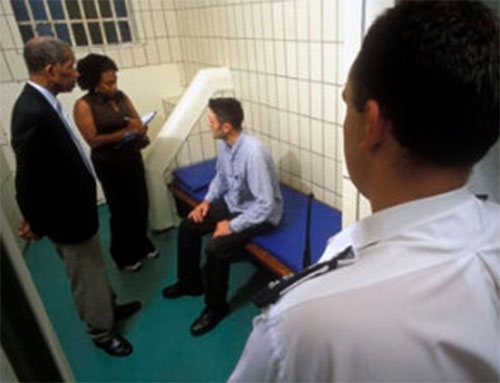How we should treat people with neurodivergent conditions in police custody
by John Nelson
Chair | National Police Autism Association
Back in October 2017, the government launched a consultation on the Codes of Practice relating to detaining people in police custody in accordance with the Police and Criminal Evidence Act 1984 (PACE), the wide-ranging piece of legislation that governs the fundamental powers and procedures under which the police service operates. The consultation was of particular interest to the NPAA and the autistic community as it included an update to the rules in PACE Code C concerning when a detainee would be provided an appropriate adult (AA), and how autism fitted in with PACE as a condition that might require an AA.

Before we look into the changes made following the consultation, a few words about appropriate adults. When a person is booked into police custody, they are entitled under certain circumstances to be accompanied and represented by another person of adult age. These circumstances are based on vulnerability, most commonly due to age – PACE states that all juvenile detainees (i.e. under the age of 18*) must have an AA in custody. The AA’s role is to facilitate communication with the detainee and ensure that their best interests are represented; they do not have to remain with the detainee during their entire stay in custody, however the AA must be present at certain key times, including the detainee being read their legal rights after being booked in, during a strip search (usually required if the detainee is believed to be concealing drugs), and when the detainee is interviewed. An AA is usually a parent or carer for a child detainee, or a friend or other family member not connected with the matter being investigated – they may also be a social work professional or a trained volunteer.
Prior to July 2018 when the revised Codes of Practice took effect, PACE Code C referred to detainees who were ‘mentally disordered’ or otherwise ‘mentally vulnerable’ as requiring an AA. The term ‘mental disorder’ seems like a throwback to a less enlightened age, and it’s a reflection of how far our understanding of mental illness and neurological conditions has come in the last 30 years that it now seems so archaic and out of place. But language aside, the obvious problem with these terms is how they accommodate neurodiverse conditions such as autism.
Most autistic people would rightly feel that a condition which is part of their identity is not a mental disorder, and would probably hesitate to describe themselves as ‘mentally vulnerable’. And yet, there are sound practical reasons why an autistic person of any standing in life would need an AA in police custody. No matter how intelligent, independent or successful an autistic individual may be, or how well-trained the officers dealing with them, the difficulties with social communication inherent in the condition may lead to a detainee missing the nuance of a question, or feeling obliged to make disclosures which could have far-reaching consequences. For this reason, the NPAA’s position is that all autistic people brought into police custody should be routinely offered an AA.
Following representations made by stakeholders and members of public, the revised Codes of Practice introduced a new description of ‘vulnerable’, linking into the Mental Health Act which in turn lists conditions including autism which may cause a person to require support in a custody setting. Although the term ‘mental disorder’ still exists within the PACE Code C to distinguish from mental health conditions, the new Codes of Practice acknowledge that there are many reasons outside of diagnosed conditions or illnesses that may require a person in custody to have an AA – for example:
- The behaviour of the detainee
- The mental health and capacity of the detainee
- What the detainee says about themselves
- Information from relatives and friends of the detainee
- Information from police officers and staff and from police records
- Information from health and social care, including liaison and diversion services, and other professionals who know or have had previous contact with the individual
Ultimately the decision on whether to provide an AA for a detainee lies with the custody sergeant, and this is where autism-specific training as advocated by the NPAA can help our colleagues to make the right decision every time. The good news is that in addition to providing training to custody staff, several Forces such as Avon & Somerset Police now explicitly ask detainees whether they are on the autism spectrum as part of the booking-in process. These measures will help to ensure that all autistic people held in police custody are treated fairly and given the support they need. ∎
*The requirement for an appropriate adult for juvenile detainees formerly applied to children below the age of 17 – this was raised to 18 in 2013
